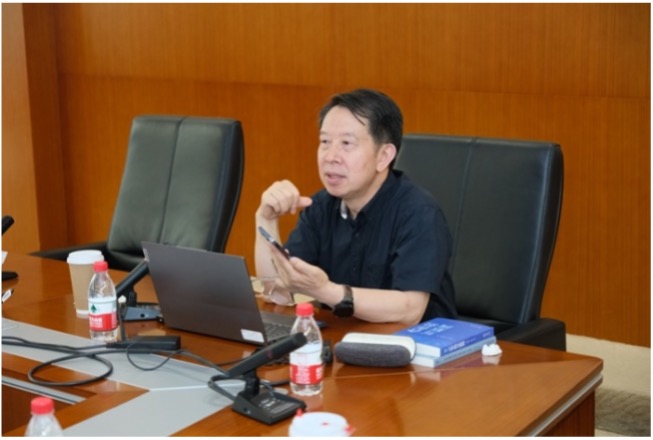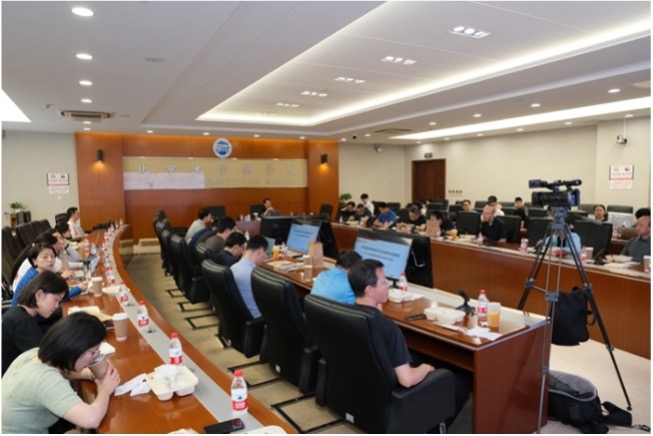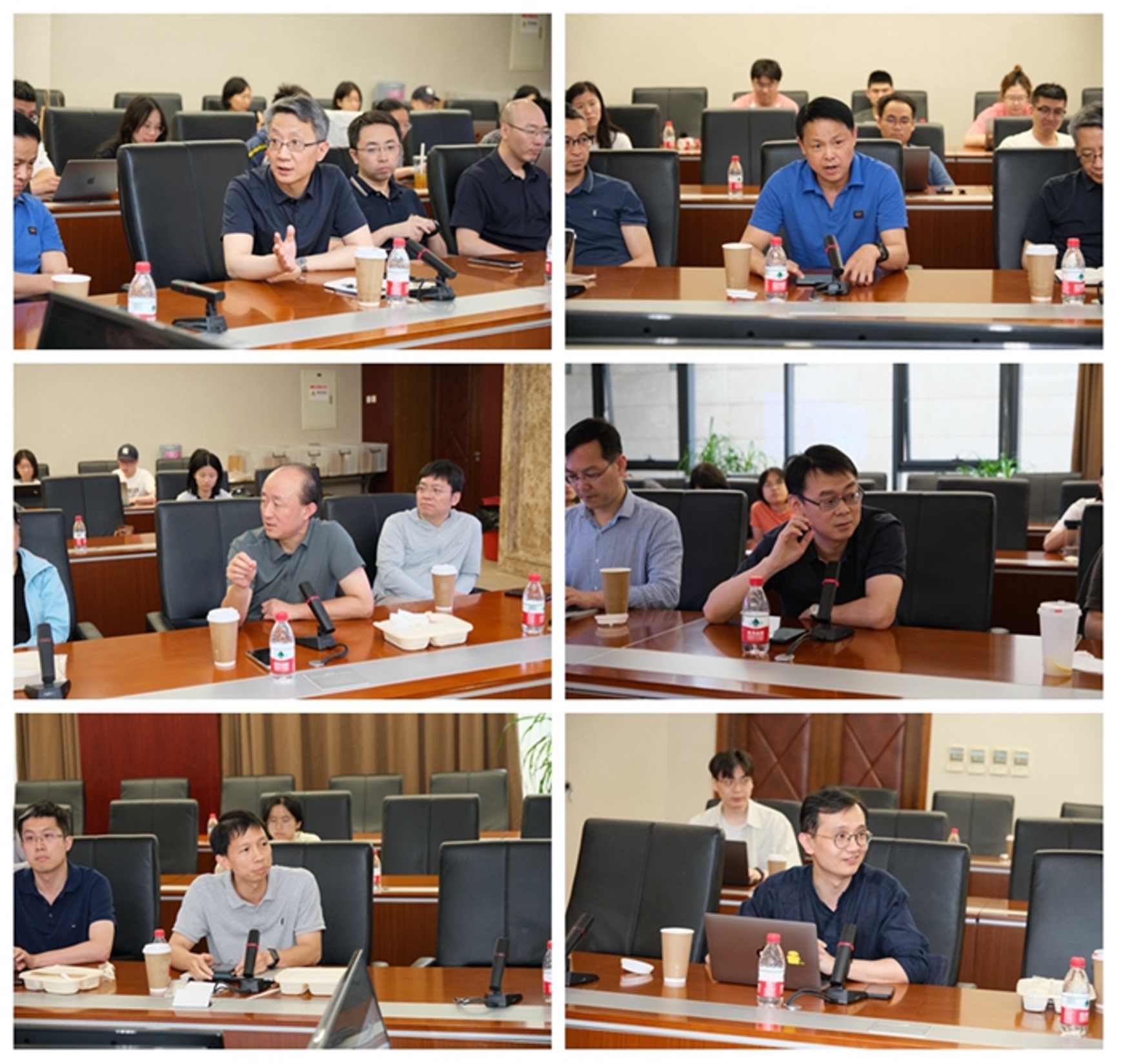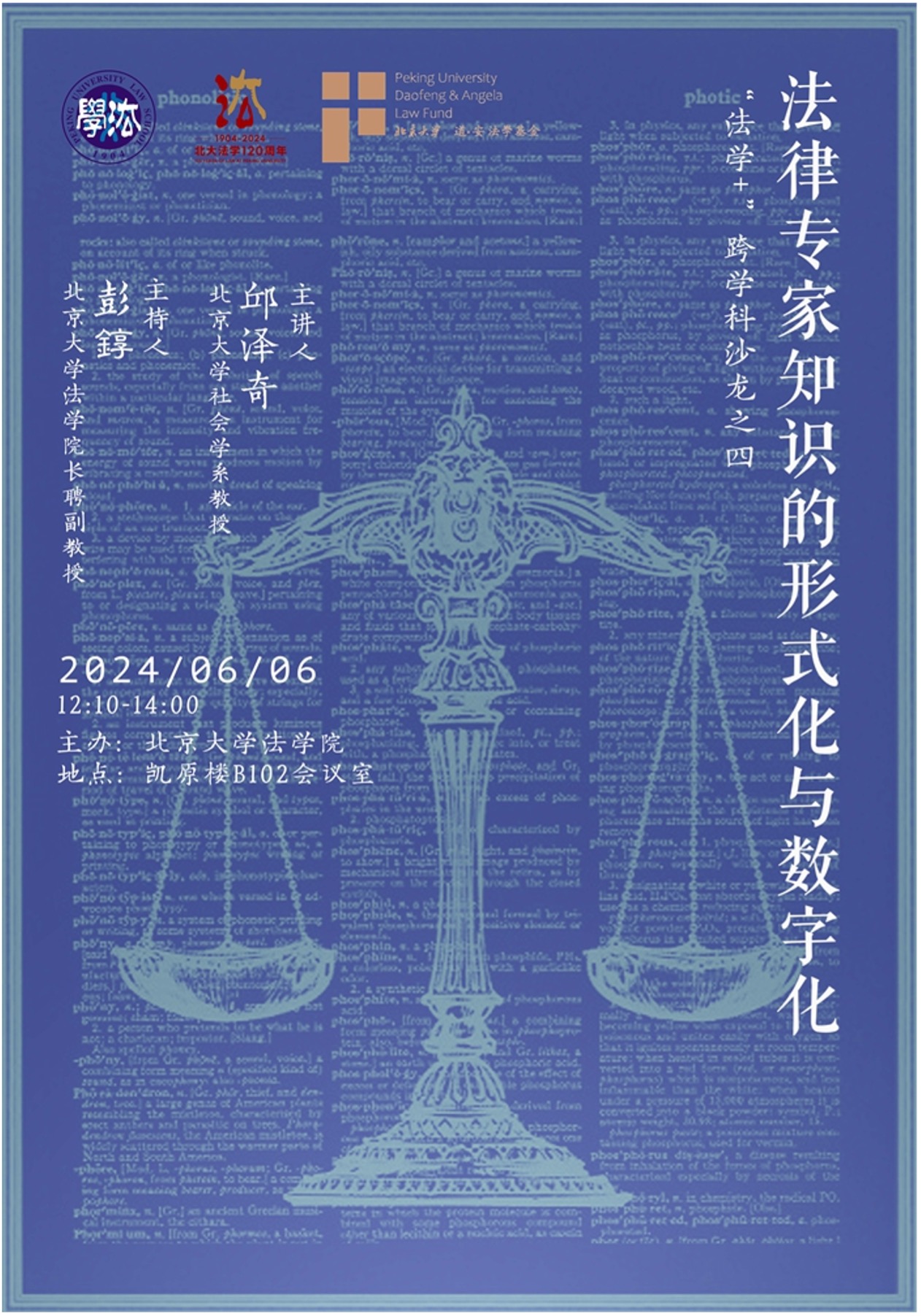The 4th Interdisciplinary Salon "Formalization and Digitization of Legal Expert Knowledge" Successfully Held
Date:2024-12-23
On June 6, 2024, the 4th "Law Plus" interdisciplinary salon was successfully held in the B102 conference room of (Leo) Koguan Building. In the first three sessions, the salon presented various interdisciplinary perspectives such as "Law + Philosophy," "Law + Literature," and "Law + History." This session of the salon was led by Prof. Qiu Zeqi from the Department of Sociology at Peking University, who spoke on "Formalization and Digitization of Legal Expert Knowledge." Over forty faculty and students from the college participated in the lecture and exchange, which was presided over by the Assistant Dean, Peng Chun. The event received strong support from the Peking University Dao An Law Fund.

Prof. Qiu Zeqi introduced the topic with the well-known AlphaGo, pointing out two paths of artificial intelligence generation: anthropomorphic bionics and adherence to their own logical rules. The human brain has already fallen far behind the latter type of artificial intelligence in terms of finite element computation, but the law is a complex system that is not finite in elements, with an increasing number of laws and highly interconnected internally. Humans cannot master the law with omniscience and omnipotence, nor can they easily understand the content of algorithms, and they face governance dilemmas brought about by the explosion of data volume.

Against the backdrop of the intelligent revolution of "knowledge dataization" in the humanities and social sciences, the formalization and digitization of expert knowledge can build an interactive bridge between law and technology. Prof. Qiu Zeqi further pointed out that this is a process of transforming expert knowledge of the legal system into digital codes that can be recognized, stored, and calculated by computers. To do this, it is necessary to define the scope of explicit and implicit expert knowledge, construct the knowledge structure that can be digitally processed behind natural language, and divide the quadrants by the two dimensions of expert knowledge content and the difficulty of regular expression, in order to truly apply it to legal practice.
During the exchange session, faculty and students actively asked questions to Prof. Qiu Zeqi. Dean Guo Li shared new initiatives of the Law School in promoting organized scientific research, Prof. Wang Xizhen shared the challenges of legal digitization based on his research experience, Prof. Ge Yunsong expressed his expectations for the future achievements of the legal knowledge graph database, and Prof. Zhang Xiang and A.P. He Jian proposed the need to distinguish between legal texts and legal knowledge. Finally, the host, Peng Chun, thanked Prof. Qiu Zeqi on behalf of the Law School for his wonderful sharing, and the 4th "Law Plus" interdisciplinary salon came to a successful conclusion.

In 2024, Peking University Law School celebrates the 120th anniversary of its establishment. The Law School actively implements the school's "Disciplinary Quality Year" requirements, striving to promote interdisciplinary integration of academic research through organized scientific research. The "Law Plus" interdisciplinary series of salons aims to enhance the interdisciplinary vision of legal research, stimulate academic innovation thinking, and help Peking University Law School achieve the development goal of building a world-class law school.




